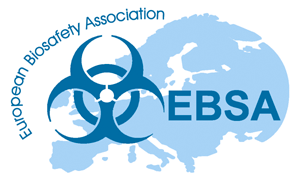About EBSA17 - Course A - Better biological risk assessment using appropriate methodologies and tools
EBSA17 - Course A - Better biological risk assessment using appropriate methodologies and tools
Course Instructors
Ursula Jenal, Jenal & Partners Biosafety Consulting, Rheinfelden/CH
Toon De Kesel, Bayer CropScience, Ghent/B
Heather Sheeley, Public Health England, UK
Description
Management of risks related to activities with hazardous biological material, be it research, development, production or diagnostics, requires risk assessment at various stages of the activity. To begin with, the hazards of the various biological materials need to be estimated. When genetic modification is involved methods and tools such as viral vectors, plasmids and types of inserts need to be considered. At a second stage biosafety and biosecurity measures need to be evaluated for their ability to contain the biological material. These measures on their own, whether organizational or technical, have their weaknesses and might be vulnerable to failures which need to be taken into account in incident and accident prevention. Advance application of several techniques (such as Fishbone, HAZOP, LOPA, SWIFT, Kinney, FMEA, HACCP, SSQ, Fault-tree, Bow tie, Brenner … ) to manage and assess risk especially in the areas of genetic modification, materials that have an insufficiently defined risk or information, animal and plant related work.
With this course the participant will understand the fundamentals of risk analysis and purpose and the terms used in risk evaluation, be able to use basic methods of risk assessment, know when to do a risk assessment and what type, be able to identify more advanced methods and applications of risk management and know how to use the finding of the assessment of risk. The course will cover these aspects in introductory presentations and case studies. Participants are asked to actively participate in the course by bringing their own risk assessment questions and work situation up for discussion. Group work would be highly facilitated by participants bringing their own laptops.
Learning Objectives
- Understand and apply the basics of risk assessment
- Identify when the risk assessment process need to be more robust
- Understanding of terms and approaches
- Ability to identify appropriate methodologies and when to use them
